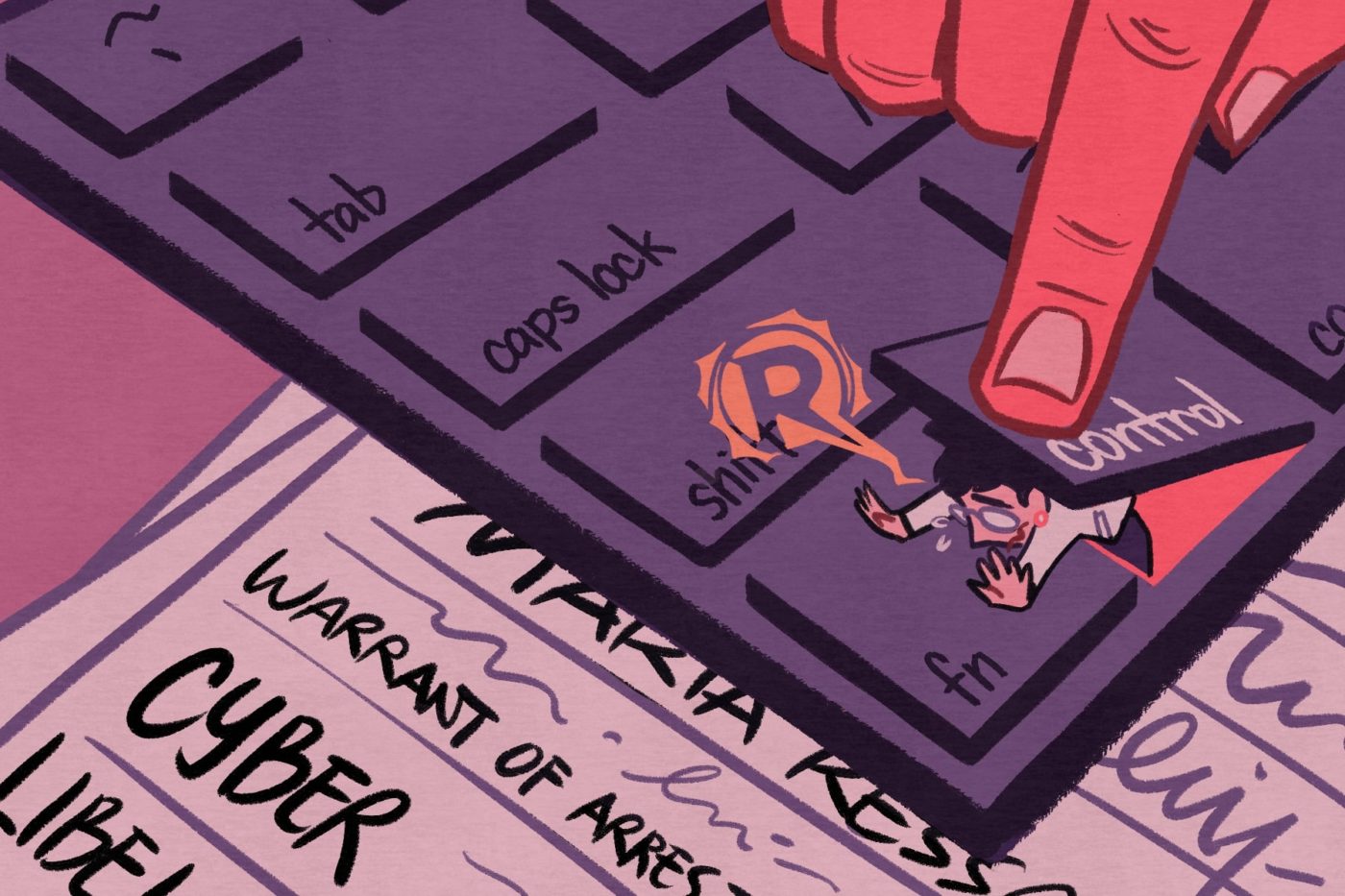THE MANILA Regional Trial Court Branch 46 convicted Rappler Chief Executive Officer Maria Ressa and former researcher-writer Reynaldo Santos Jr. over cyber libel charges this morning. According to Rappler, the case is possibly “the fastest libel trial in recent history.”
The ruling comes after businessman Wilfredo Keng filed a cyber libel case against Ressa and Santos over a 2012 investigative article, which prompted inquiry into Keng’s links to former Chief Justice Renato Corona and the latter’s controversies. Keng repeatedly requested that Rappler either take down the article or include his side of the story, but Atty. Ryan Cruz—Keng’s counsel during the trial—claimed that Rappler did not grant Keng’s request.
The article in question was originally published in May 2012, four months before the cybercrime law was enacted. Although the penal law cannot be applied retroactively, the Department of Justice (DOJ) deemed the article republished due to an update made in 2014 to correct a misspelled word. The DOJ cited G.R. No. 72383—whose verdict observes the multiple publication rule—as the case’s basis. This ultimately placed Santos’ article under the cybercrime law’s scope.
Ressa and Santos’ conviction came from the slimmest twist of the law’s technicalities, setting a dangerous precedent for further attacks against the free press to continue. Every online post can now be subject to scrutiny for up to 12 years following its publish date, fundamentally placing a target on anyone who has posted criticism against the Duterte administration.
Connecting the dots
Weaponizing the law to silence critics is a familiar face in the Philippine political landscape. During the late dictator Ferdinand Marcos’ rule, various independent media outlets were shut down and led to the arrest of journalists. Despite the restoration of democracy in 1986, government-led attacks on the media have not ceased decades later.
One such instance is President Rodrigo Duterte’s heightening tensions with media outlets. Throughout his presidency thus far, he has openly threatened media giant ABS-CBN with the non-renewal of its franchise. Soon after, the National Telecommunications Commission seemingly delivered on Duterte’s threats by ordering the media giant’s shutdown last month. Rappler has similarly earned the same ire of the administration, having faced a total of 11 cases against them.
The pattern is clear. Media outlets and journalists openly threatened by Duterte fall victim to controversial cases, such as those of Ressa and ABS-CBN. Ressa and Santos’ conviction is a shining example of how far this administration will go in order to discredit and foster public doubt towards media outlets.
Holding steady
In a time when freedom of information and the press are most necessary, the ruling against Ressa and Santos reveals yet another cut to democracy: The weakening of the country’s democratic institutions in the name of law.
An attack on the media, then, is an attack on the people’s rights—the fight to uphold freedom of speech does not end with urging the government to stand with journalists.
We at The GUIDON thus condemn the government’s failure to protect our nation’s democratic institutions. We call on the Ateneo and the Filipino people to join the fight for the free press to thrive and fearlessly hold truth to power. As Filipino citizens, it remains our responsibility to practice vigilance in the face of institutionalized threats against our Constitutional rights.
Journalism is the bedrock of democracy and will always serve as such—and if our history is any indication, it will not falter. Without journalists—our first line of defense—to hold those in power accountable, our nation will walk blindly into injustice.
We will not succumb to the administration’s continued attempts to build its regime on fear.
We, too, will continue to hold the line.







